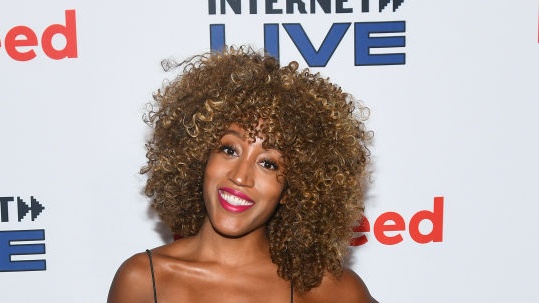Black journalist Patrice Peck has created a groundbreaking newsletter dedicated to giving Black people coronavirus news which is pertinent to the community. Peck will be sending out about three emails every week containing a variety of news stories and op-eds related to the coronavirus pandemic and Black people, who are disproportionately suffering from the virus compared to other races in the United States.
On April 5, I launched "Coronavirus News for Black Folks," a weekly newsletter focused on news about the coronavirus disease (COVID-19) and pandemic as they directly relate to us Black folks.
Please consider subscribing & sharing: https://t.co/vxxnIXKkv9
pic.twitter.com/yXZg11ykEE— Patrice Peck (@SpeakPatrice) April 14, 2020
"As a Black woman and freelance journalist passionate about writing stories for us, I’ve been desperately brainstorming constructive ways to lend my writing skills to help suppress the coronavirus disease (COVID-19) and pandemic," Peck wrote in the newsletter's first story. "At the same time, for a *long* time, I’ve been wanting to write more original stories independent from any publication, for my own audience, and to start a newsletter as a way of practicing that. So I decided to combine all of these ideas and dedicate my newsletter SpeakPatrice to highlighting coronavirus news for Black folks, both stories written by other journalists and by me, Patrice Peck."
Peck has spent years working as a journalist and has written for an array of publications, including The New York Times, The Los Angeles Times, EBONY, BuzzFeed, ELLE, Teen Vogue, HuffPost and BET.
Needless to say, there are plenty of topics to cover when it comes to the coronavirus pandemic and Black people, and Peck is up for the challenge. In an interview with Harvard University's Neiman Lab, Peck spoke about what she hoped people would gain from her newsletter.
She said the coronavirus pandemic "is the most important, most pressing news story of our time" and noted that there is still a "huge lack of widespread daily coverage focused on the ways in which the disease and pandemic are disproportionately impacting the Black community."
"Not only will this lack of coverage likely worsen the pandemic overall due to a lack of greater awareness and information about the disease and pandemic within (and without) our community, but it’ll also devastate our community to a much greater degree. So, SpeakPatrice Presents: Coronavirus News For Black Folks aims to empower our community by circulating existing coronavirus (COVID-19) news and stories as it relates to the black diaspora and creating our own original FUBU written and audio content to fill the many gaps in coverage, from how the disease and pandemic are specifically impacting our physical and mental health, our social and cultural structures and institutions, and more," she told the Neiman Lab.
Peck recently held an Instagram Live panel featuring UCLA Dean Patricia A. Turner, therapist Dr. Racine Henry and author Amber Butts to discuss the coronavirus pandemic.
For the last two weeks, there has been an exponential growth in stories about how the virus is affecting Black communities. Major cities in the country have reported worrying rates of virus contraction and death in Black neighborhoods, as Blavity previously reported.
There have been dozens of local stories detailing the devastating effects of the virus on average people in communities across the country. The first woman to die from the coronavirus in Illinois was a Black woman, and the country was horrified when a Black bus driver in Detroit spoke passionately about how afraid he was of people coughing on his bus, only to die a week later from the virus. At one point in the crisis, every person who died from the coronavirus in St. Louis was Black.
Dozens of Black celebrities, including Oprah, Idris Elba and Cardi B, have spoken out about the virus. The issue went national when the surgeon general spoke out, sometimes clumsily, about how and why the virus is killing Black people more than other groups.
There has been concern about how some directives from the CDC will affect Black people. The issue is even international, with Black people being discriminated against in China over coronavirus concerns and French doctors openly musing about testing vaccines in African countries.
In her interview with the Neiman Lab, Peck said her newsletter will include "easy-to-skim news aggregation" as well as audio content, user-generated stories and interviews.
"There are so many gaps, because there are so many underreported areas of intersections within the Black diaspora. For example, Black people in the U.S. experience significant health disparities that also include lack of access to quality health care and insurance, so it’s critical that publications consider how this uniquely impacts Black immigrants and include these groups when addressing disparities among immigrant communities," she said.
HBCUs are facing many challenges managing coronavirus responses and need your support. Donate to the UNCF fund today to help students impacted by the pandemic.
